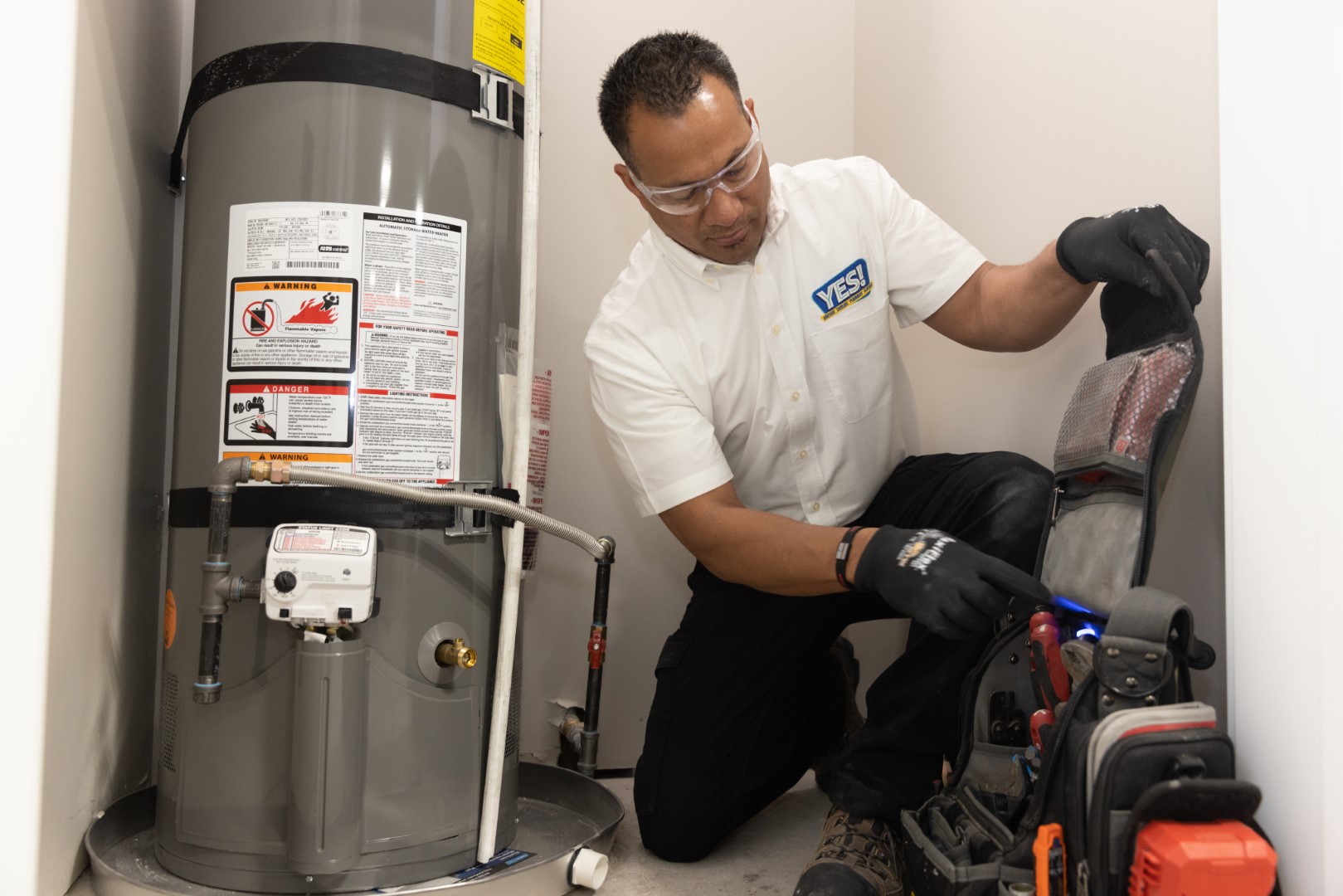Tankless Water Heater Installation in Las Vegas, Nevada and Salt Lake City, Utah

When it comes to water heating for your home, you have two choices: traditional tank heaters and tankless heaters. Tank or tankless, each comes with its pros and cons when you consider costs, longevity, and performance. More common in older homes, traditional tank heaters come in a range of sizes, usually holding between 30 and 60 gallons of hot water. These heaters rely on a perpetual heating source that is gas or electric-powered to keep the stored water at a specified temperature throughout the day and night. This way, hot water is always ready to use when someone bathes or washes dishes. Tanks run the risk of emptying under excessive hot water usage. This translates to waiting for the tank to refill and reheat the water, so you need to make sure the tank size is right for the size of your home and number of family members.
Tankless heaters offer on-demand hot water using a gas or electric heat source. This means it heats water only when a hot water outlet like your shower calls for it, so there is no storage. As a result, tankless heaters are 24–34 percent more energy-efficient over a traditional tank in households using less than 41 gallons of hot water a day. Demand heaters are simpler to repair than their traditional counterparts and take up little space.
Benefits of a Tankless Water Heater
- Hot water on demand
- Hot water as long as you need
- Save space with compact design
- Reduce utility cost (based on use)
- Choose between gas or electric
Costs and Longevity
Purchase and installation costs can run $1,000 up to $4,500 based on the brand and type. Demand heaters can last 20 years, even longer with basic upkeep and part replacement. The cost savings on your energy bill will compensate for the upfront cost over eight years or so.
Performance
There are some drawbacks that your household must adjust to. If multiple hot showers occur within a tight time frame, the tankless heater’s output may not meet the demand efficiently. There is also what’s known as the “hot water sandwich” — hot water sitting in pipes between uses will cool, leading to an occurrence where hot water turns cold for a few seconds. Call 844-216-9300 to learn more.
Water Heater FAQ's
What size tankless water heater do I need?
There are plenty of answers on the internet regarding this question, however, it's better if you have a knowledgeable plumber evaluate your plumbing system and personal needs to make sure you’re covered for your needs and water demands.
How does a tankless water heater work?
Also known as demand-type or instantaneous water heaters, provide hot water only as it is needed. Tankless systems don’t produce the standby energy losses associated with storage tank water heaters. Schedule a plumbing system evaluation to find out what tankless system might be best for your home and needs.
What maintenance is required for a storage or tankless water heater?
It's common practice to have your tankless system descaled at least once per year to extend the life and efficiency of your tankless water heater.
It's also common practice to have your storage water heater flushed and checked for safety precautions to ensure your water heater runs longer, more efficiently and of course safely.
Can I get hot water faster with a tankless water heater system?
There are options to speed up the time it takes to get hot water. Schedule one of our plumbers to provide an estimate based on your plumbing system and needs.
Will a tankless water heater lower our energy costs?
Essentially yes, but it depends on several variables such as quality parts, mineral build-up, and variable demand for hot water.
